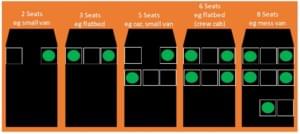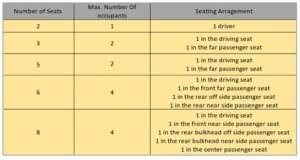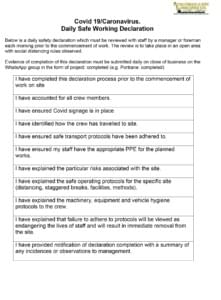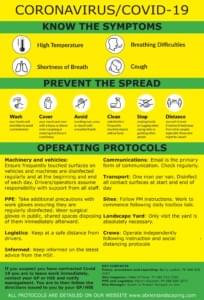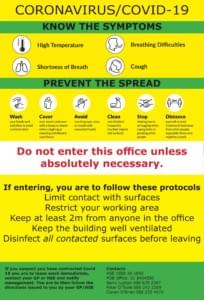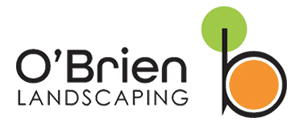Covid-19 Operating Procedures
Peter O’Brien and Sons Landscaping LTD is fully operational and working under strict national and international best practices detailed below.
Key Covid 19 contacts
-
Policy, procedure and reporting: Barry Lupton. Ph 086 829 2067/email
-
Site inspector: Peter O’Toole. Ph 086 243 2369/email
-
PPE and Logistics: Martin Goucher. Ph 086 829 2071/email
-
Site Manager: Speak to Project Manager on site.
Customer Procedures
- Our landscape depot is open to visitors. Please follow the instruction on site.
- Sales queries can be directed to Oliver Kenna on Ph. 845 2555o r via email
- Do not visit our administration offices unless absolutely necessary.
Operating Procedures. 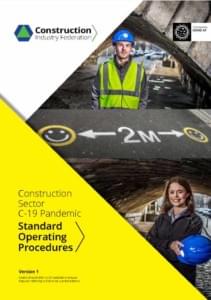
We have adopted the National Best Practice protocols developed and circulated by the Construction Federation of Ireland. The full document can be downloaded here. Below is a brief summary of key operational protocols.
Operations: We continue to operate a full service for essential infrastructure and services with a number of strict protocols in place to ensure everyone’s safety. Protocols are in line with HSE guidelines. If you require any assistance with understanding these protocols, you should speak with a member of the management team immediately
Management/Administration: Work from home.
Unless otherwise instructed, administrative staff are to work from home. Where office attendance is unavoidable, staff are to adhere to poster protocols
Communications: Use email.
Email is the primary form of communication. Check regularly. Staff and management are not to attend meetings unless unavoidable. Social distancing protocols to be followed for any meeting.
Landscape yard: Avoid.
Staff should only attend the yard when absolutely necessary. If attending, you are forbidden from entering shared spaces. Any contacted surfaces should be disinfected before departure.
Sites: Follow instruction.
Follow instructions provided by the site project manager. Instructions will include a daily toolbox talk prior to commencement each day, operating procedures (PPE, areas, breaks, facility use, transport, deliveries, machine use and protocols should someone test positive procedures). Anyone found not to be adhering to protocols will be removed from a site immediately.
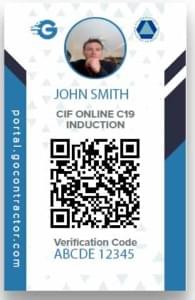
All operating staff will have a Construction Industry Federation COVID 19 induction code available for inspection
Suspected cases: Follow guidelines.
If you suspect you have contracted Covid 19 you are to leave work immediately, contact your GP or HSE and notify management. You are to then follow the directions issued to you by your GP/HSE. You are to remain in communication with management, notifying them of any change to your circumstances.
If there is a confirmed case of Covid-19 identified, the related site will be stood down and staff will have to self-isolate. The site will then be reviewed and where possible, a new crew will be allocated.
Logistics: Keep your distance.
Supplier deliveries are to go directly to sites. Advance contact is to be made with sites prior to departure to ensure adherence with site protocols. Social distancing protocols are to be adhered to during any delivery actions. A delivery acknowledgement will be forwarded through email notification and receipt.
Crews: Work independently
Crews will operate independently from each other on separate projects and will adhere to strict social distancing protocols.
Machinery, tools and vehicles: Keep separate and keep clean.
Machines and tools are to be crew or individual specific. All frequently touched surfaces on machines and company vehicles are to be regularly disinfected. Disinfection should also take place at the beginning and end of each day. It is the direct responsibility of drivers/operators to ensure vehicles/machines are fully disinfected. However, all staff are to actively engage and support the disinfection process.
PPE: Wear at all times. Masks are to be worn with the exception of when a staff member is working alone and will not come in contact with anyone. Staff are to take additional precautions with work gloves ensuring they are regularly disinfected. Surgical gloves should be used during times where they are in public, shared spaces and likely to come in contact with surfaces. Gloves should then be disposed of in a safe manner.
Transport: Minimise risk.
COVID-19 may be transmitted between persons travelling in vehicles if adequate controls are not followed. There are two primary routes for transmission of the COVID-19 virus in vehicles: Respiratory – droplets are generated when an infected person coughs or sneezes. These droplets can be inhaled when airborne (for a brief time only). Contact – droplets may land on surfaces where the virus could remain viable.
Social Distancing in Vehicles: Single occupancy of vehicles is preferable.
PPE in vehicles: masks must be worn in all shared vehicles with no exceptions.
Where single occupancy is not viable, it is advised that the shared use of a car/van/truck for travel is limited to two persons and only if the 2-metre social distancing can be maintained. Exceptions to this rule are illustrated in figures 1 and 2.
Sit as far apart as the vehicle allows.
Figure 1: Road Vehicle Occupancy Restrictions
Figure 2: Road Vehicle Seating Arrangements
Other Control Measures for Vehicle Use
Workers should consult with their supervisor regarding travel arrangements to/from sites.
Some general guidance for minimising the potential transmission of COVID-19 are:
- Staff should not enter a work vehicle if they have any symptoms or have had contact with a confirmed case of COVID-19.
- Members should consider requesting personnel to use personal transport to reduce numbers travelling in work vehicles.
- It is advisable, for contact tracing purposes, to limit the “churn” of people travelling together (i.e. try to ensure the same crew members travel together day after day).
- Consider the wearing of disposable gloves when travelling (and dispose-of appropriately at end destination).
- When entering (and leaving) all vehicles/mobile plant, the driver/operator should clean all common areas that are liable to be touched including the external door handles, keys and other internal furnishings as illustrated in figure 3.
Figure 3: Parts of a Vehicle’s Interior to Clean/Disinfect
- Keep windows at least partially open and (where possible) avoid using air conditioning.
- Keep personal items (PPE, clothes, lunch boxes etc.) separate.
- Wiping/cleaning down of contact points should be done using antibacterial wipes or a wet cloth with soap application, or equivalent. At least 70% alcohol solution is effective against coronavirus, and isopropyl alcohol won’t do the main surfaces any harm. Micro-fibre cloths are ideal for cleaning all surfaces.
- Dispose of used wipes/cleaning materials in a designated bin/sealed bag and wash hands for at least 20 seconds.
Note: Never use hydrogen peroxide on a vehicle’s internal furnishings as it will most likely cause damage, as will excessive scrubbing of the seats and other surfaces. Additionally, do not use cleaning products containing ammonium on touch screens.
Display notices
Daily safe working declaration
Vehicles and machines
Offices and shop
Thank you for your assistance.

